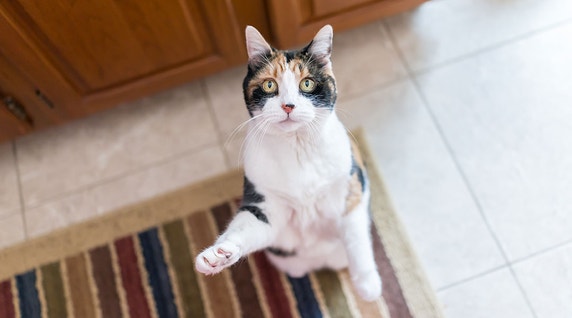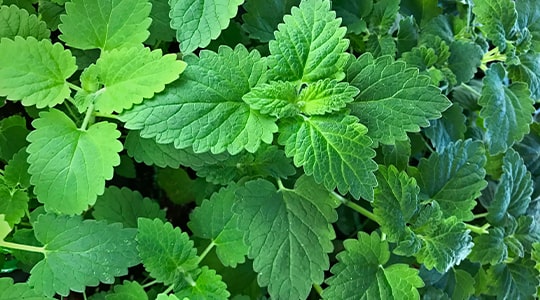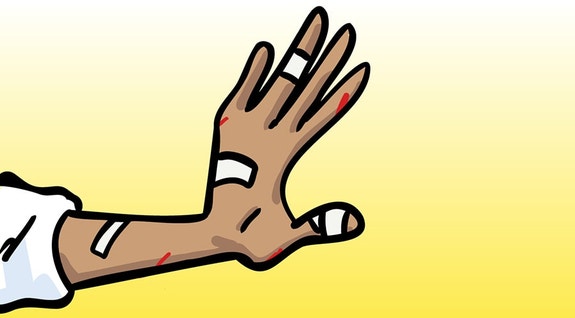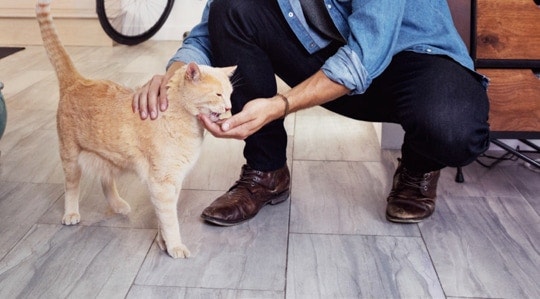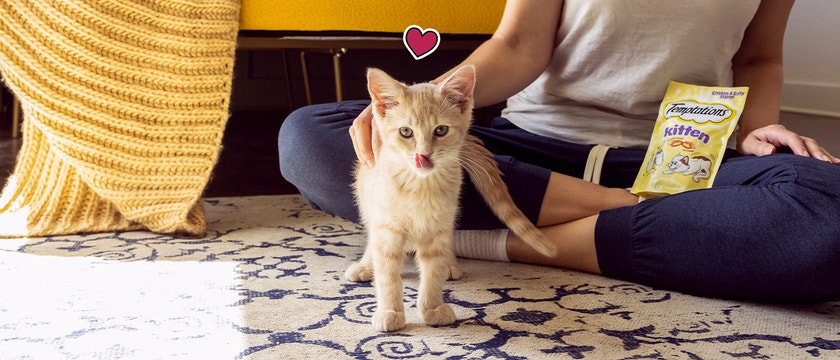
What Can Kittens Eat and What Should They Avoid?
Your sweet little kitten is swirling around your legs hoping to convince you it’s mealtime. It’s no wonder — they’ve been running and jumping all day! You know nutrition is crucial at this stage, and you want to get it right. So, what can kittens eat and are there foods they should avoid?
In this article, we’ll tell you the foods that are safe and healthy for kittens as well as anything they should steer clear of. We’ll also give you some feeding tips to maximize your kitty’s mealtime.

Kittens’ Nutritional Needs
Before we get to what kittens can eat and what they should avoid, let’s review the nutrients kittens need to grow healthy and strong.
Note: Keep in mind that the below are general guidelines. It’s important to always consult your veterinarian for specific nutritional advice.
Calories
First of all, your growing kitten will need ample calories to fuel their abundance of energy. In fact, a kitten needs a lot more calories than an adult cat.
When feeding your kitten, you want to consider the target calories for their weight and ideal body condition in addition to the portion size printed on the kitten food bag.
Protein
Cats are obligate carnivores, which means they need essential amino acids from animal protein sources such as fish, beef, and chicken to survive. It’s best to feed them a variety of protein sources so they don’t get bored or become picky.
Fatty Acids
Fatty acids (think Omega-3 and Omega-6) support your kitty’s healthy skin, fur, reproductive system, and metabolism.
Minerals
Minerals such as calcium, phosphorus, potassium, sodium, chloride, and magnesium are crucial for kittens, as these minerals help support kitty's growth and development. Other minerals such as copper, iron, manganese, zinc, iodine, and selenium are also important to support health.
Vitamins
Your kitten needs essential vitamins to support growth and overall maintenance of health. These include Vitamins A, D, E, B1, B2, B6, B9, and B12.
Taurine and Choline
Kittens will also need taurine to stay healthy and grow. Taurine is an amino acid, mainly found in animal proteins, that cats need to eat in order to properly develop their vision, heart health, and immunity.
Choline is an essential nutrient for cats as well and, unfortunately, a sufficient amount of it is not made naturally in kittens’ bodies. That means their food will need to contain enough choline to make up for what they’re lacking.
Water
It may seem obvious, but your kitten needs lots of water for survival. Always keep clean water available, whether in a fountain with a filter or by replacing their bowl of water daily.

What Can Kittens Eat: Human Food
While a few human foods are safe for kittens to eat, anything not specifically made for them should be given in small amounts, like a treat. Let’s take a look:
Meats and Fish
As we said earlier, kittens need protein from animal sources, so any chicken, beef, or fish will be well-received. Limiting seasonings and not fried is best.
Fruits and Vegetables
Your kitten can eat a range of fresh fruits and vegetables in small quantities. Safe fruits include strawberries, melon, bananas, pears, blueberries, and nectarines. As for veggies, they can try green beans, peas, bell peppers, sweet potatoes, and cauliflower.
Table of Contents
Eggs
Although your cat should never eat raw eggs, a cooked egg is perfectly safe for them.
Starches
Rice, potatoes, and pasta are also safe for kittens in small quantities (and without all the extras we humans tend to add for flavor).
Keep in mind that, although your kitten can eat all of these human foods safely, it can be dangerous to feed them scraps from your plate. You never know if there are small bones or trace amounts of foods that are toxic to them (garlic or onion, for instance).
Of course, a kitten’s first food is their mother’s milk, which gives them all the nutrients they need for those first few weeks of life.
After that, wet and dry commercial kitten foods are normally recommended, as they’ve been specially formulated to address a kitten’s unique dietary needs.
Wet Kitten Food
Wet kitten food contains a lot of water, which could help support your kitty's hydration. Wet food also tends to be tasty and easy for their little teeth to bite into.
Dry Kitten Food
Dry kitten food is good for your kitty’s overall dental health, as it can help reduce plaque and tartar buildup.

Treats
From about six months on, your kitten can be fed treats(open in new tab) — something they’re sure to enjoy! Keep in mind that they should not get more than 10% of their daily calories from treats or snacks.
Our TEMPTATIONS™ Kitten Chicken and Dairy Treats(open in new tab) are a great way to reward a good kitty! All you have to do is shake the bag and they’ll come running for the crunchy-on-the-outside, creamy-on-the-inside treats.
And you can feel good about these kitten treats, too. At only two calories apiece, our treats(open in new tab) are 100% nutritionally complete.
Although some human food is safe for your kitten to eat, there are also a host of foods that you should never feed your furry friend.
Onions and Garlic
Kittens must steer clear of onions and garlic because they’re made up of sulfur-containing oxidants, disulfides, and thiosulphates that are toxic to cats and can damage their red blood cells.
Chocolate and Other Caffeine
Just like with your dog, chocolate is a hard no. The theobromine and caffeine in chocolate can be toxic to cats, even in small amounts. As for caffeine, although it’s unlikely that your cat will go for your morning coffee, the coffee beans (or even tea bags) can make them sick.
Grapes and Raisins
Grapes and raisins must be avoided because they can be toxic to cats.
Citrus Fruit
You also want to avoid feeding your kitten citrus fruits like oranges, lemons, limes, and grapefruits. These will irritate your kitty’s digestive system and can be toxic.
Avocados
Say no to avocados for your kitty — the fat content is so high it can cause pancreatitis.
Most Dairy Products
Contrary to popular opinion (thanks, Hollywood), you might think serving a little saucer of milk is just right for your baby kitty but take heed: cats are lactose intolerant. Anything high in dairy will likely leave them with a crummy tummy.
Salty Foods
Foods high in salt can be dehydrating for your kitten, and too much of it can lead to health concerns.
Raw or Undercooked Foods
Your kitten should avoid raw or undercooked foods, as these may have harmful bacteria such as Salmonella or E. coli, or parasites like Toxoplasma or tapeworms.
Xylitol
Xylitol, a sugar substitute often present in sugar-free gum, toothpaste, candy, baked goods, and even some peanut butter, is highly toxic for cats and must be avoided. If ingested, it can cause vomiting, seizures, or even liver failure.
Alcohol
It’s no surprise that you should never feed a kitten (or any animal) alcohol. It is extremely toxic and can cause alcohol poisoning.
Nuts
Nuts can not only cause digestive issues for kittens but can also be a choking hazard.
Dog Food
If you’ve got a dog in the house, your kitten might get curious and try to eat from their bowl. The problem is that dogs have different nutritional needs, so if your kitty does this, they’re not getting the specific things, like taurine, that they need to grow strong and healthy.
On top of that, dog kibble is bigger than cat kibble, which could cause a choking hazard for a kitten.

Tips for Feeding Your Kitten
Read the Label
The first thing you should do before feeding your kitten is to read the label on the food. Whatever you’re feeding them, you should have the Association of American Feed Control Officials(open in new tab) (AAFCO) statement of nutritional adequacy.
Choose Food That’s Easy to Chew
Stick to food specifically made for kittens. Not only will it have the right balance of nutrients but it’s also formulated so that tiny mouths and teeth can chew it easily.
Mix It Up
Train your kitty to have a wide palate. Mix up the different protein sources your kitten eats in their wet and dry food.

Happy Kitty, Healthy Options!
Now you have the peace of mind to know what kittens can eat and what they should avoid to help them stay healthy. Although many different human foods are safe, it’s best to stick with commercial kibble and wet foods that have been made with your kitten’s nutritional needs in mind.
When it comes time to give your furry friend a treat, TEMPTATIONS™ cat treats are what they’ll be meowing for! Our treats in Kitten Chicken and Dairy(open in new tab) and Kitten Salmon and Dairy(open in new tab), have been made especially for kittens. You can even use them as a kitten food topper.
Feeding your kitten is a big responsibility, but at TEMPTATIONS™ brand, we make it easy for you to reward your kitty with treats that are not only tasty but also good for them. Your kitten won’t be able to resist!
